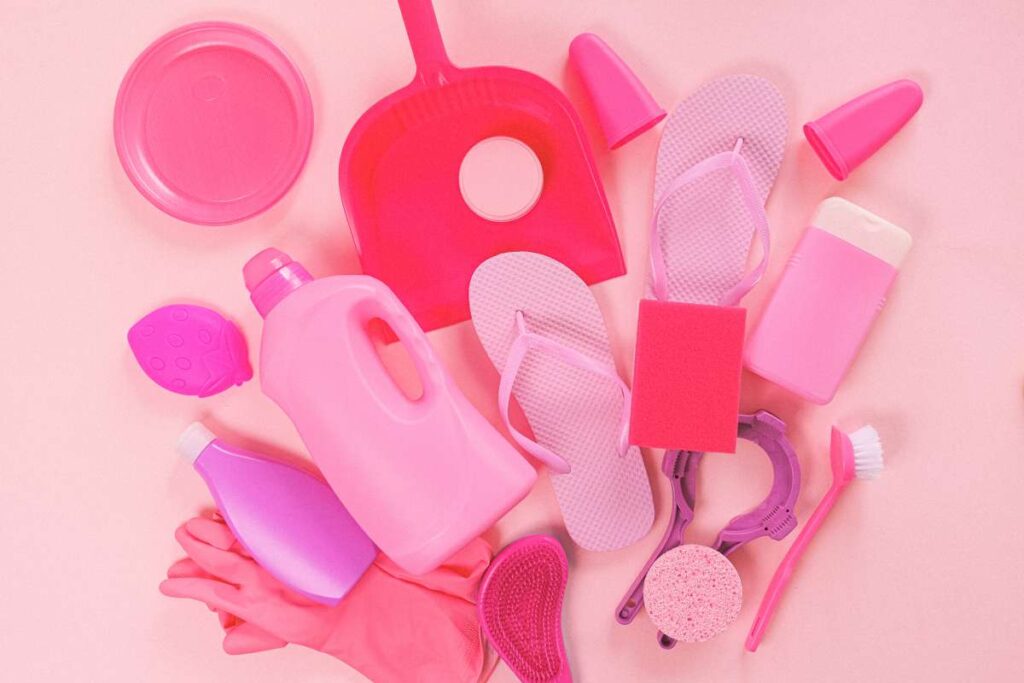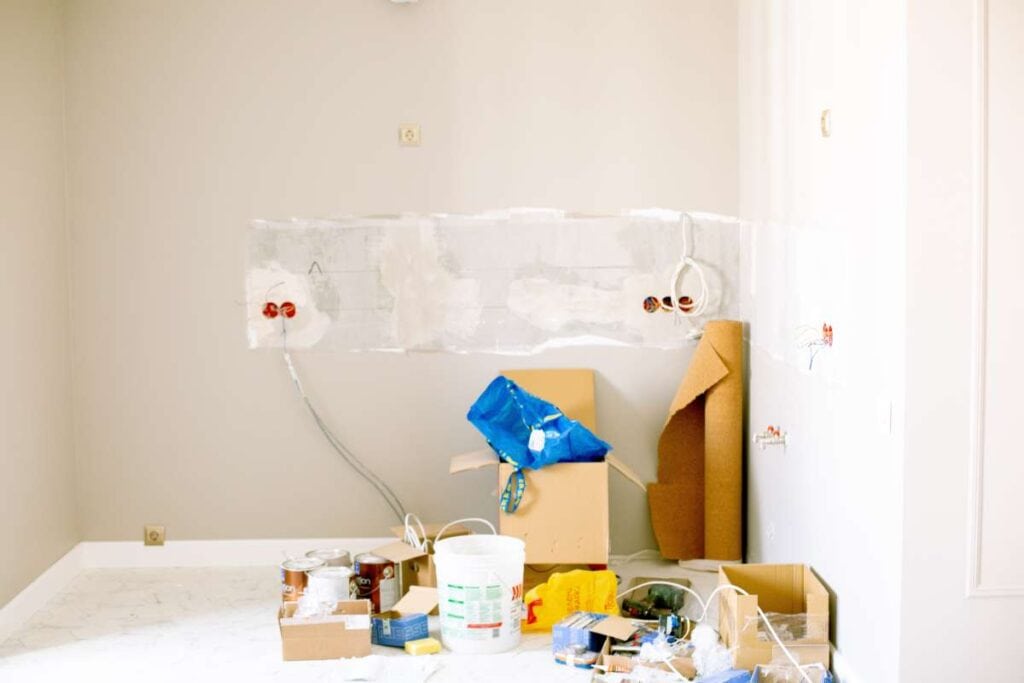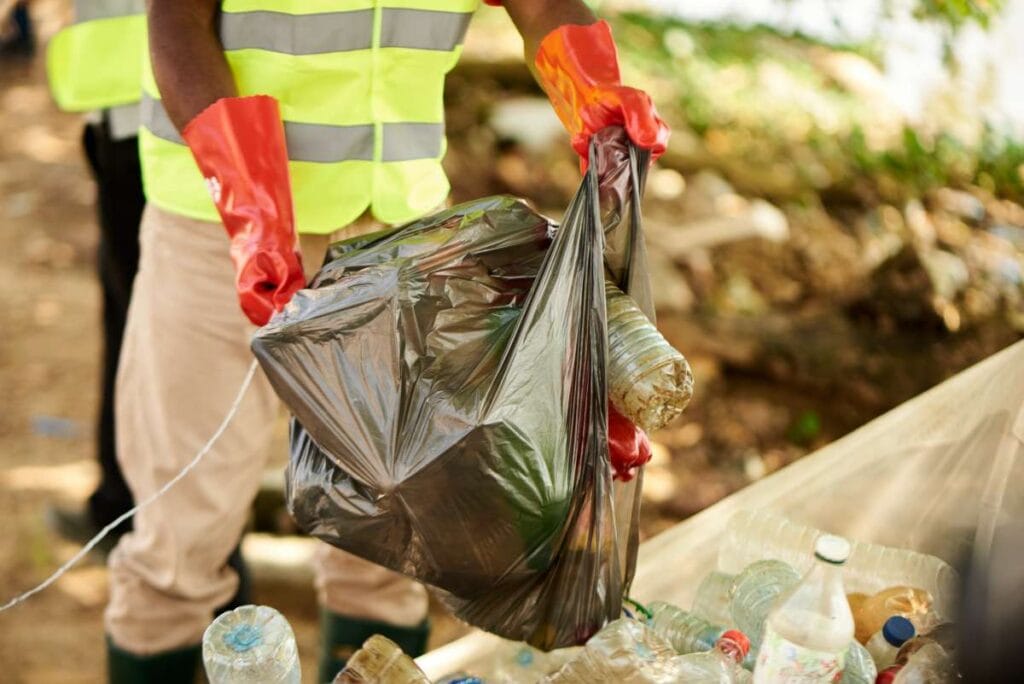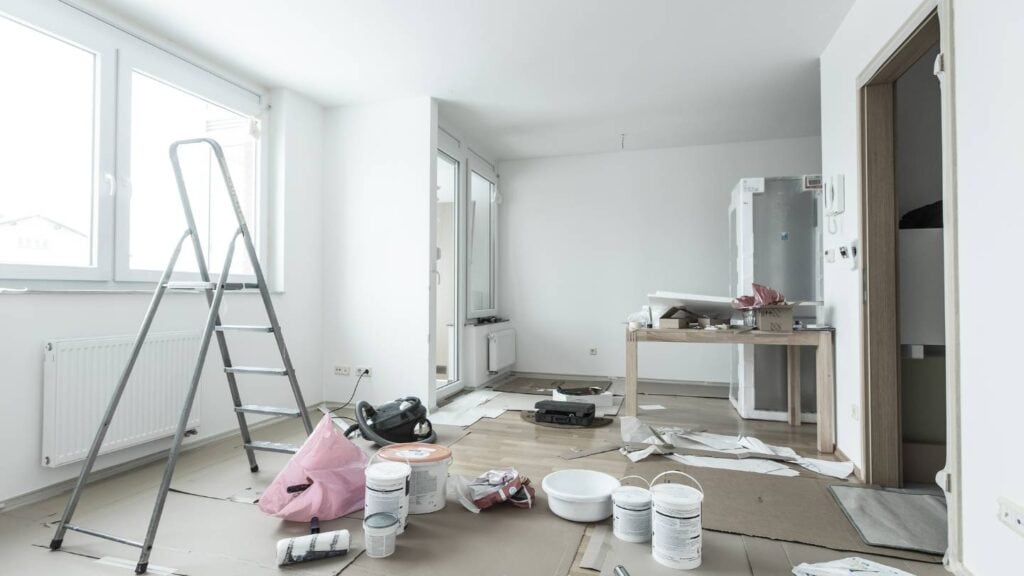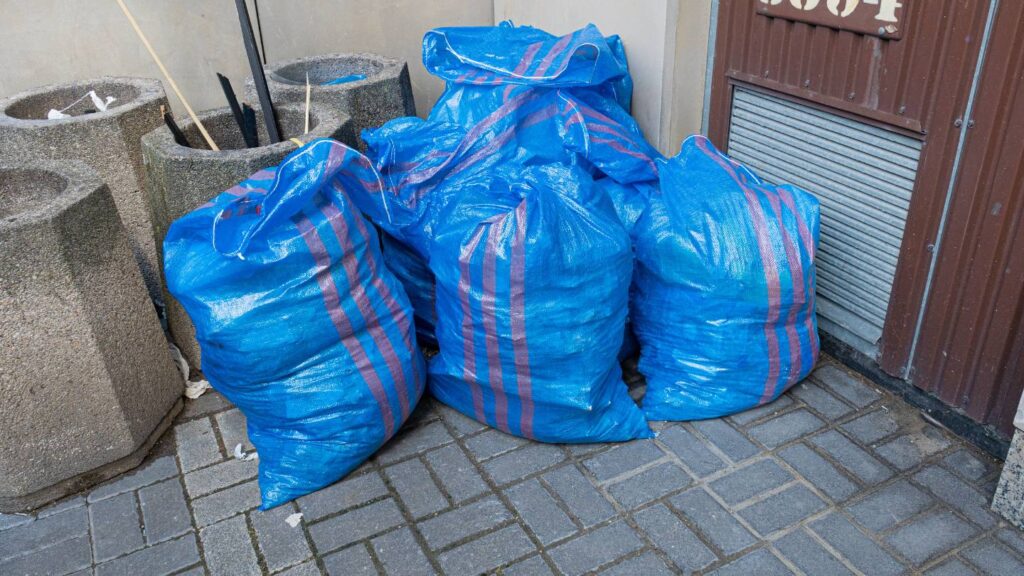Inappropriate disposal of household chemicals is a serious threat to human and environmental health. Many common household items contain hazardous materials like flammable, reactive, corrosive, or toxic ingredients. Products in this category include disinfectants, batteries, pesticides, and paints. Aside from having an effect on our immediate environment, improper disposal of these chemicals has the potential to contaminate soil, water, and air.
The proper disposal of common household chemicals is an important skill to have for the sake of protecting oneself, one's loved ones, and the environment. In this manual, we'll examine a number of options and recommendations for properly discarding these potentially dangerous substances. By following these guidelines, we can reduce the harm that is done by everyday chemicals.
Which Common Household Chemicals Are Dangerous?
A hazardous chemical waste removal service should be called to remove and properly dispose of any toxic, flammable, oxidising agent, or abrasive products from around the house, yard, pool, or garage. The following are examples of typical household items:
- Fire hoses and sprinklers
- Cooking oils, fuel oils, and motor oils
- Items connected to painting
- Cleansing agents and solvents
- Chemicals for the swimming pool
- Neutrals and acids
- Bottles of gas
- Insecticides
Low- Or High-Risk Household Rubbish
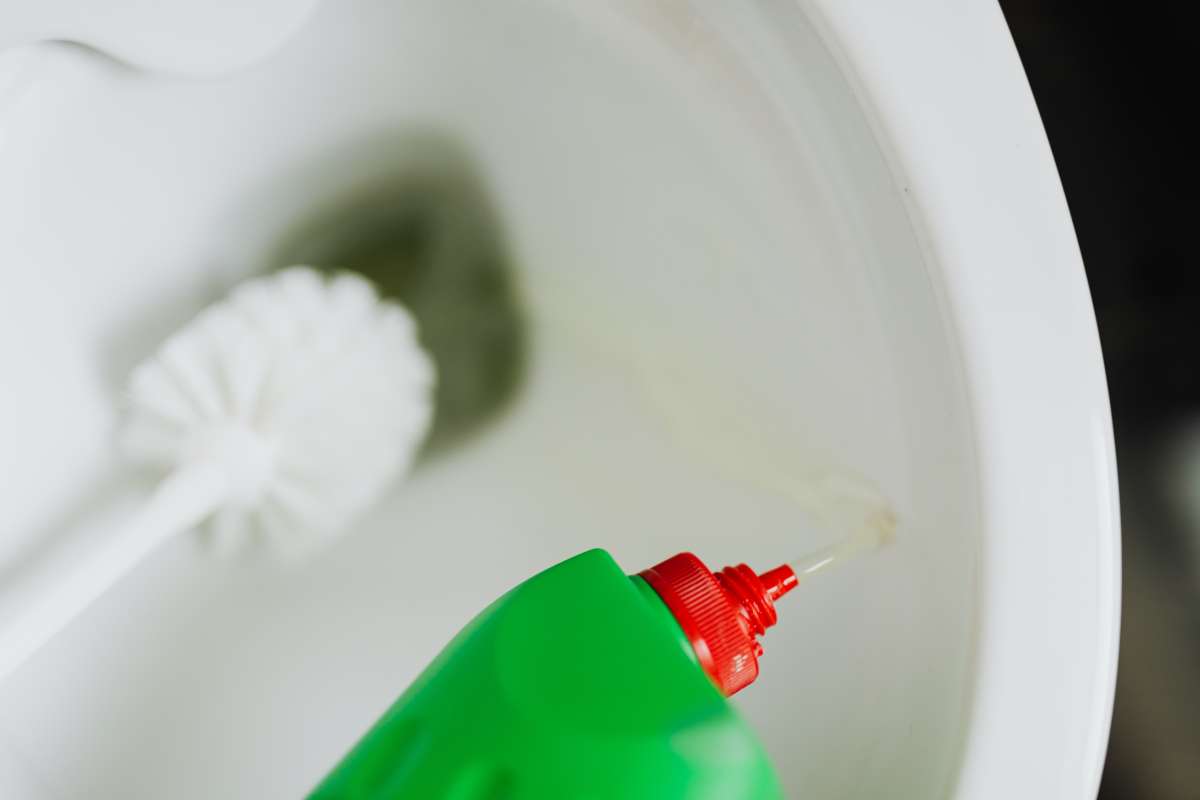
The terms household hazardous waste are:
- Toxic materials from private residences, such as old medicines, paints, and pesticides
- Waste from "small-quantity generators," or companies that produce only modest amounts of toxic waste,
Contrary to popular belief, "moderate- or low-risk" does not refer to material with a low level of danger. Instead, this label indicates that less stringent regulations apply because less waste is being generated.
Risks Posed by Commonplace Chemicals and Garbage
Check any of your drawers and closets. You can find a variety of products here, including varnish, turpentine, thinner, glue, drain opener, cleaning products, batteries, furniture polisher, and insecticides. Because of the chemicals used in their production, all of these items pose a safety risk.
In most cases, these goods are risk-free when used as directed on the label, but hazards arise when users mishandle, forget, or ignore that they contain potentially harmful ingredients.
A lot of people are hurt every year due to household items. Leaving a product where a child can easily access it increases the risk of accidental poisoning. It's also possible to get it from eating, drinking, or smoking before handling dangerous materials. The fumes or vapours from many products can be irritating to the lungs. The use of these dangerous goods has resulted in severe blindness, injuries, illness, or even death.
Household toxic wastes consist of harmful products that have been discarded because there is no longer a need for them or wanted in the home. Only a little fraction of trash ends up as household hazardous waste, but this is still an issue.
Incorrect disposal endangers both the workers and the environment. Throwing away dangerous household wastes increases the risk of an explosion or fire in the garbage truck. Workers who transport garbage have been hurt by chemical fumes and spills. These contaminants have the potential to seep into our drinking water supply if they end up in a landfill.
Drinking water can be tainted if people flush their hazardous wastes down the toilet.
Dangerous wastes pose a threat to the microorganisms that keep septic systems functioning. Because of this, untreated wastes may enter the ground and eventually the water table.
As a result of typical household toxic wastes damaging sewage treatment, raw sewage and chemicals have been released into neighbouring rivers. Unsanitary practices such as dumping into storm drains lead directly to nearby bodies of water. When it rains, anything you pour on the ground could wash away or spread.
Household toxic products are dangerous and should be disposed of in a specific way. To protect human health and the natural world, we must all take personal responsibility for the items we buy and consume.
Actions To Take
- Before making a purchase, it is important to read the label. Don't buy anything that has those words on the label. Harsh, acidic, corrosive, hazardous, explosive, flammable, poisonous, toxic, eruptive, or volatile.
- When possible, switch to products with fewer risks. Products with a lower risk to consumers can be found elsewhere.
- Get only as many of these potentially dangerous household items as necessary for the job at hand.
- Always read and abide by the product label's dosage instructions. Extra isn't always helpful and sometimes even detrimental.
- In case you are expecting, it is best to stay away from potentially harmful products.
- When the warning label specifies that inhalation of vapours, direct eye contact, or skin contact should be avoided, protective gear should be worn.
- Completely deplete supplies. Until it is no longer required or used, it is not considered hazardous waste.
- Donate unused items to a charity, a friend, a neighbour, or a local business.
- Waste materials that can be reused or recycled should be disposed of in an environmentally responsible manner. If you want to know where you can drop off your trash, you should get in touch with the local waste and recycling authorities.
- Store items in their original packaging with labels that can be easily read.
- Wait to throw away any unused materials until your area holds a household hazardous trash collection.
- Make a case for the necessity of a household rubbish collection programme to your local government officials.
Things You Need To Avoid
- Products should not be left where children or pets can get to them.
- Never give a child any kind of hazardous product or garbage to play with or dispose of.
- Do not discard waste in backyards or storm drains.
- Neither destroy nor bury.
- Do not throw away or flush down the toilet without first checking the manufacturer's disposal instructions.
- Do not recycle or reuse containers.
- Do not combine unless the label specifically instructs you to do so.
Store Products Safely
- Seal containers securely to prevent leakage, drying, or evaporation.
- Lock away potentially poisonous materials from curious hands and furry friends.
- Put away in a dry, cool place.
- Keep out of the reach of any open flames or sparks.
- Keep labels and packaging intact when storing.
- If the wrapping is disintegrating, put the container in a clear pail or glass jar with a tight top. Place an absorbent material around it, like floor dry or cat litter that won't catch fire if it gets wet.
- Keep combustibles, acids, and poisons in separate cabinets.
How To Properly Dispose Of Household Chemicals
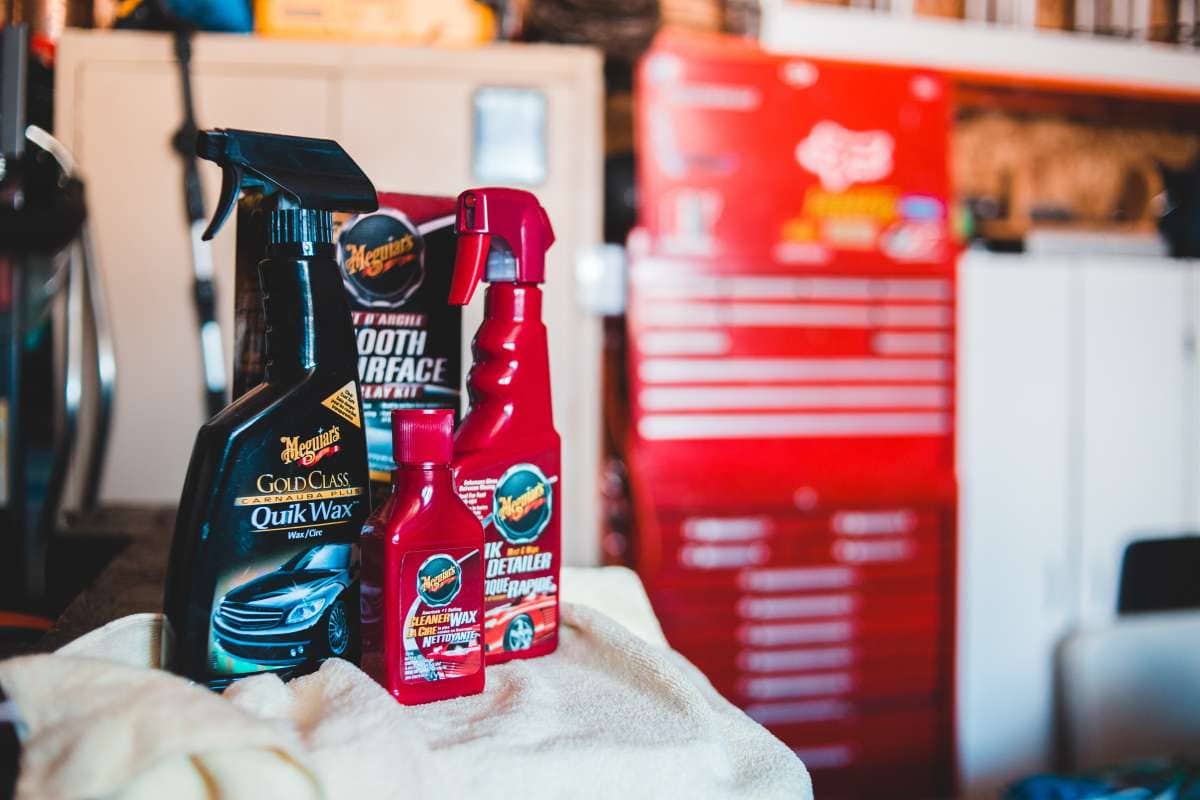
Electronics
The release of new models of consumer electronics every few months ensures that many people will eventually amass a large number of obsolete gadgets. While it may be tempting to toss out that old computer, charger, phone, and cable, you should think twice before doing so. In fact, it is illegal in the majority of the country.
Thankfully, many stores that sell electronics also have take-back programmes where customers can bring in or mail in their old devices for recycling. The municipal solid waste service is another resource for learning about upcoming spring electronic recycling events in your area. A local e-cycling service may also be contacted.
Paint And Wood Stain
No matter how meticulous your preparations are, there will always be a tiny bit of paint left over. Sealing and storing paint and wood stain correctly can extend their useful life by as much as 15 years. It's a good idea to hang on to any leftover paint or stain from a recent project in case you need to do some touch-ups.
Donating leftover paint to an organisation like Habitat for Humanity, which helps those in need of supplies for home repairs, is a good idea. However, hardware stores like Home Depot or Lowe's might take paint that has dried out.
Fluorescent Light Bulbs
Fluorescent light bulbs should be disposed of properly because of the trace amounts of mercury they contain. There may be a bin at your neighbourhood hardware store for old light bulbs, but some manufacturers also have mail-back programmes.
Batteries
Batteries can be recycled, but many people still throw them away despite their hazardous materials. Check with your local trash service or electronics stores like Best Buy, Home Depot, RadioShack, and Target to see if they offer battery drop-off services.
Cleaning Supplies
Cleaning products that contain harmful chemicals should be replaced with safer, natural or homemade alternatives as part of your spring cleaning. Household cleaning products typically contain toxic chemicals and should be disposed of carefully. Look at the bottle's back for recycling or trash disposal information.
It's possible to flush many liquid, gel, and powder cleaning products down the drain after use. When an aerosol can or plastic bottle is empty, it can usually be recycled. Products like oven cleaners that contain harmful chemicals should be disposed of in a special facility.
Fertiliser And Garden Chemicals
The proper place to dispose of garden chemicals is at a community collection of hazardous materials. Garden supply shops may also be willing to take unwanted chemicals like fertiliser. Friends and family may be able to put your garden chemicals to good use. It is illegal to dispose of them in a storm drain or sink drain.
Medication
Medication that is still in its original packaging should never be disposed of in this manner. Medication that is flushed down the toilet poses a threat to the water supply and groundwater aquifer. You can find usable pills in the trash and use them.
Until the next "clean sweep" or medication take-back programme in your area, it's best to store any leftover or unused medication somewhere secure. At least one annual gathering of this type is held in most communities. Crush any leftover medication, combine it with dirt, kitty litter, or used coffee grounds, and then store the mixture in a sealed container before disposing of it.
Automotive Fluids
Sometimes the dirtiest and most difficult part of spring cleaning is clearing out the garage. You can usually bring your old oil, antifreeze, other fluids, and oil filters to a collection event for hazardous household waste. There is a possibility that garages in your area have similar programmes, though they may charge you to drop off used fluids. A car battery can usually be returned to the store where it was purchased.
FAQs About Rubbish Removal
Household hazardous waste includes products that can catch fire, react, or explode under certain circumstances, or that are corrosive or toxic. Examples of HHW include paints, cleaners, oils, batteries, and pesticides.
Most hazardous household waste disposal sites are free, with some exceptions. Call your local disposal site to see their restrictions or fees. Local officials will tell you how to get rid of chemicals in your area. It's important not to mix chemicals, put chemicals down drains, sewers, or toilets, or burn chemicals. You should also wash your skin if you get chemicals on it, and take off your clothes and wash them if chemicals get on them.
The active ingredients in household cleaners can vary widely, so it's best to consult the packaging for disposal instructions. Some of the milder solutions can often be poured down the drain, but those with more hazardous chemicals, such as oven and drain cleaners, furniture and metal polish, and tub and tile cleaners, should not be poured down the drain.
The Center for Disease Control recommends checking with the manufacturers' instructions for disposal, which can sometimes be found on the label; if not, check with their website for more information.
Some household products can be recycled, such as office paper, aluminum cans, and plastic bottles. However, if a household chemical is considered hazardous waste, it should not be recycled but rather disposed of properly.
Conclusion
The improper disposal of common household chemicals poses a significant risk to public and environmental health. Inflammable, reactive, corrosive, or toxic substances can be found in common household items like disinfectants, batteries, pesticides, and paints. Any toxic, flammable, oxidising agent, or abrasive items found in the home, yard, pool, or garage should be removed and disposed of by a hazardous chemical waste disposal agency. Varnish, turpentine, thinner, glue, drain opener, cleaning products, batteries, furniture polisher, and pesticides are all examples of ordinary chemicals and waste that pose health risks. These harmful products have been linked to permanent blindness, serious injuries, disease, and even death.
Toxic wastes from the home are potentially dangerous items that have been thrown away because of their lack of usage. Both workers and the environment are at risk if these materials are disposed of incorrectly. Taking ownership of the products we purchase and use is crucial in the fight to preserve human and environmental health. Taking the necessary precautions includes reading and following the product label's dosage instructions, using protective gear, using up all supplies, donating unused items to a charity, a friend, a neighbour, or a local business, and disposing of waste materials in an environmentally responsible manner. If you need information about where to take garbage or recyclables, contact your municipal waste management or recycling centre.
Products shouldn't be stored in a place where pets or kids could get into them. Products should be stored in a dry, cold area with the containers tightly sealed, away from any poisonous materials. Recycling electronics and properly sealing and storing paint and wood stain can double or even triple their usable lifespan. You may help organisations like Habitat for Humanity and local hardware stores by donating any unused paint, fluorescent light bulbs, batteries, or cleaning materials. Although batteries contain toxic elements, many individuals nevertheless dispose of them in the trash.
Safer alternatives should be used for cleaning and then properly discarded. The back of the bottle should have recycling or garbage instructions. Community hazardous waste collections are the place to get rid of fertiliser and other garden chemicals. Never put medication down the drain or toilet. A collection event for hazardous household waste is an appropriate place to bring fluids from vehicles. You can give your used batteries back to the store you bought them from.
Content Summary
- Inappropriate disposal of household chemicals poses a serious threat to human and environmental health.
- Common household items contain hazardous materials like flammable, reactive, corrosive, or toxic ingredients.
- Disinfectants, batteries, pesticides, and paints are examples of household products that contain hazardous chemicals.
- Improper disposal of household chemicals can contaminate soil, water, and air.
- Proper disposal of common household chemicals is crucial for protecting human health and the environment.
- A hazardous chemical waste removal service should be called for the disposal of toxic, flammable, oxidizing, or abrasive products.
- Household hazardous waste includes toxic materials from private residences and waste from small-quantity generators.
- "Low- or high-risk" household rubbish refers to the amount of waste generated, not the level of danger.
- Common household chemicals and garbage products pose safety risks due to mishandling or neglecting their harmful ingredients.
- Accidental poisoning and injuries can occur from improper storage and handling of household chemicals.
- Incorrect disposal of household wastes endangers workers and the environment, increasing the risk of explosions or fires.
- Contaminants from household wastes can seep into drinking water supplies and harm septic systems.
- Dumping hazardous wastes into storm drains can directly pollute nearby bodies of water.
- Responsible disposal of household toxic wastes is essential for protecting human health and the natural world.
- Before purchasing household products, read the labels for warning signs of danger.
- Switch to products with lower risks whenever possible.
- Only acquire the necessary amount of potentially dangerous household items.
- Follow dosage instructions on product labels and avoid excessive use.
- Pregnant individuals should avoid exposure to potentially harmful products.
- Wear protective gear when handling chemicals that can cause inhalation, eye contact, or skin contact hazards.
- Deplete supplies completely before considering them hazardous waste.
- Donate unused items to charities or local businesses.
- Dispose of recyclable materials in an environmentally responsible manner.
- Store items in their original packaging with readable labels.
- Wait for a household hazardous waste collection event to dispose of unused materials.
- Advocate for the implementation of household rubbish collection programs.
- Keep hazardous products out of reach of children and pets.
- Never give children hazardous products to play with or dispose of.
- Avoid improper disposal methods like backyard dumping, burying, or flushing down the toilet.
- Store products safely by sealing containers, locking them away, and keeping them away from flames or sparks.
